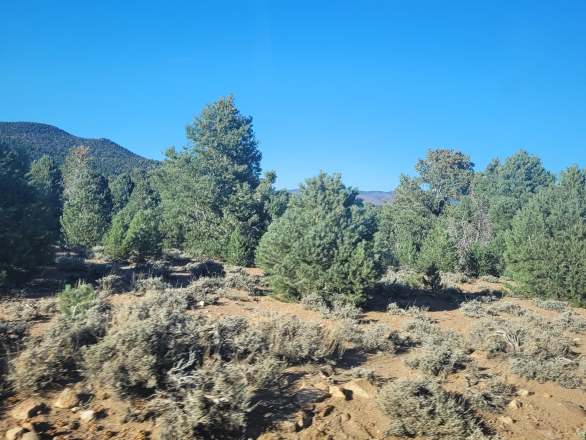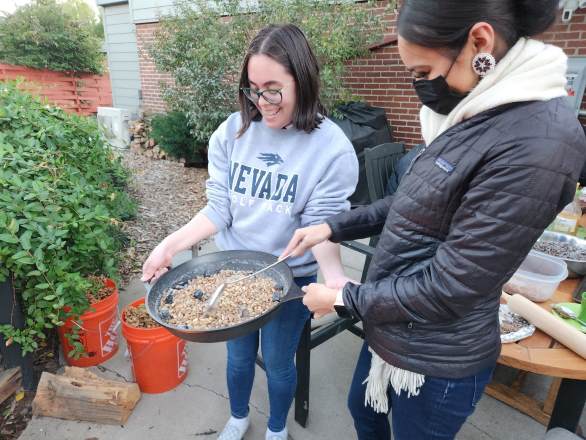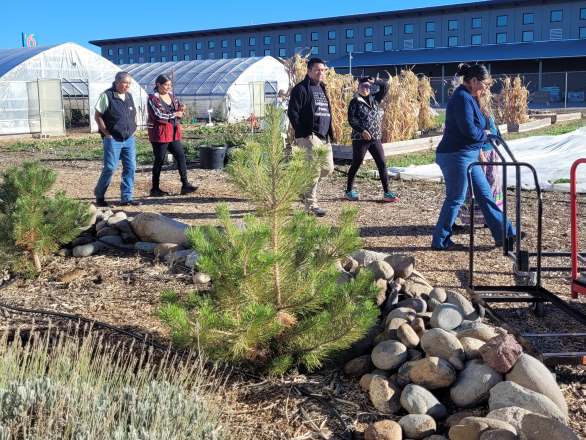I am Nina Vargas - a first-generation undergraduate Choctaw student in biochemistry and planning for a career in medicine. While interning for the Food Sovereignty Program at DFI, I was able to learn the importance of respecting the traditions and the Indigenous knowledge that has been passed down or shared with the program. During my first couple weeks, I got to go to a pine nut gathering with my elders and other Native students. This was one of the most incredible experiences I have ever gotten to be a part of, as it allowed me to talk to the others and learn about their Tribal communities and how the culture was important to them. Additionally, I learned from an auntie about the important traditions for gathering, like the prayer that thanked the land for growing the pine cones and thanked the spirits for a successful gathering.
During the weeks I worked on the farm, I learned food safety and organic farming practices - this was a significant part of my internship. For example, I learned ways to prevent contamination of produce and proper techniques for weeding and watering to ensure the healthy growth of each crop. This practical learning experience was both engaging and enlightening, deepening my connection to the farming process.
When I was conducting research about plants of cultural importance, I learned agricultural terminology, medicinal uses, and research techniques. When compiling information for each plant, I made sure that all information was relevant to this region for seed selection, pretreatment and crop management. I also learned how Tribes use the plants for food and ethnobotany, which gave me further guidance on respecting traditions. Three Sisters plantings at DFI - growing corn, beans, and squash together as companion plants - highlight some important crops and practices for native communities.
During the preparation for Paba Tuka (the Big Eat this fall), I got to experience how most dishes are made, and I was able to apply some of the knowledge I gained during the plant research. For example, when making elderberry lemonade, the elderberries need to be cooked for about an hour to break down the toxin sambunigrin found in their seeds. This was of particular interest to me as a premed student. Additionally, I got to experience how much care and effort are put into each dish when we made pine nut soup - carefully boiling, shelling, roasting, grinding and cooking. The feast itself was spectacular - with extra support from my mom as she helped me cook the trout! We also gave tours of the food sovereignty garden at DFI that day. It was amazing to see all our hard work pay off and enjoy the prepared dishes.





